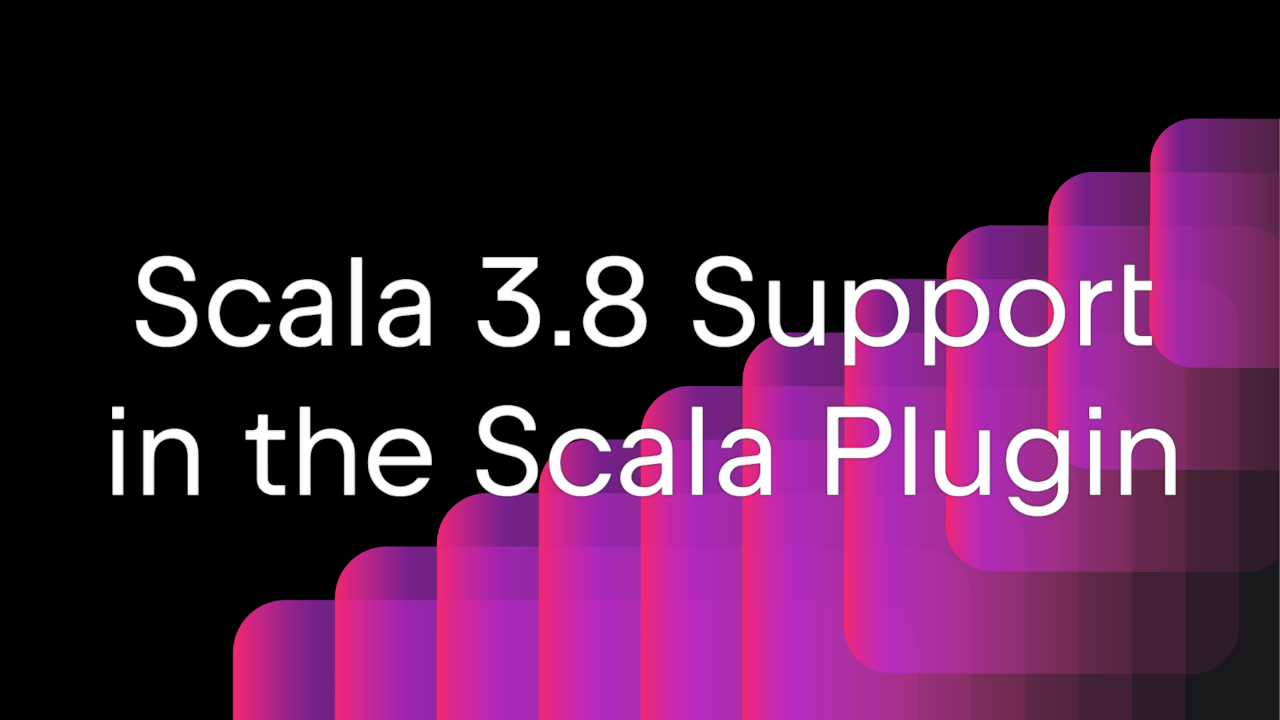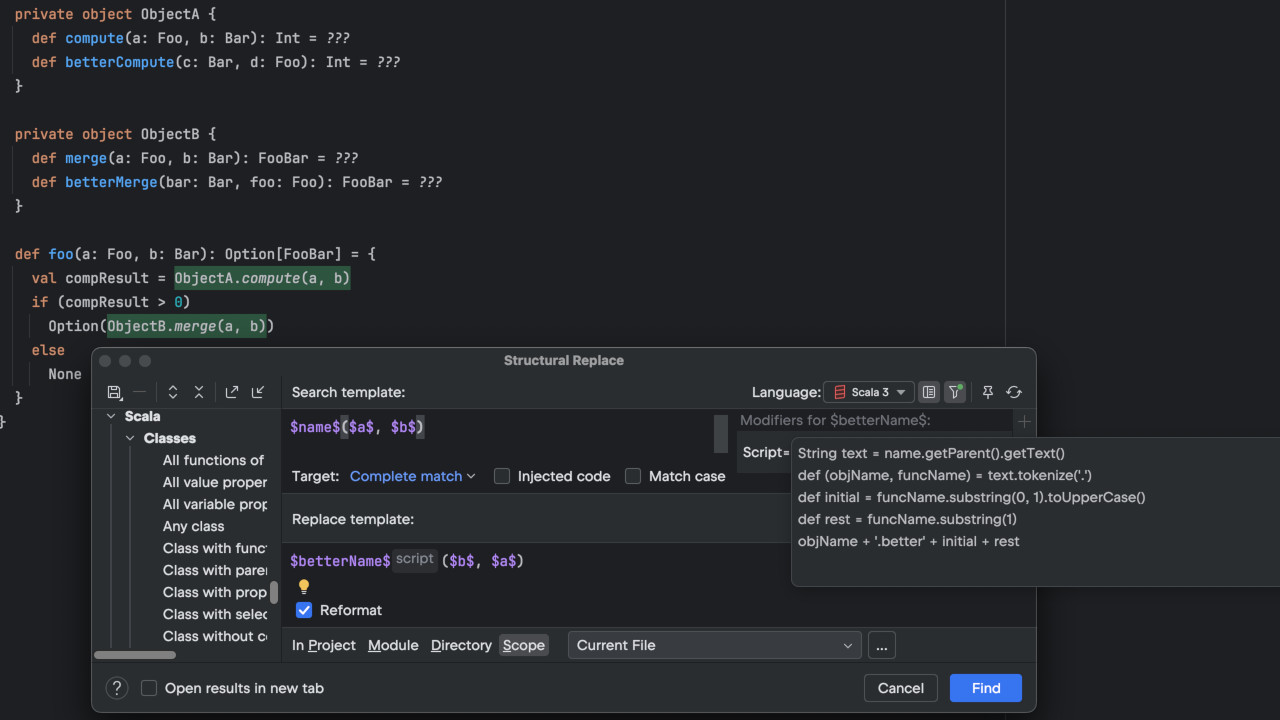Scala Plugin
Scala Plugin for IntelliJ IDEA and Android Studio
How to contribute to IntelliJ Scala plugin
It may well be that you haven’t considered contributing to any open source project, let alone the IntelliJ Scala plugin. However, if you use IntelliJ IDEA to write Scala code, it’s actually a very reasonable thing to do. Here’s how you can benefit from contributing to the plugin code base.
There’s a common misconception about attracting contributors where the process is viewed as "a way to get developers for free." Nothing could be further from the truth, at least in our case. While the Scala plugin code is open source, there are currently 10 people in the Scala team at JetBrains working on the project full-time. Believe me, we can implement features and fix bugs on our own just fine, and that’s the straightforward way to do that. We’re making additional efforts by creating documentations, publishing tasks, recording videos and doing consulting in order to get to know people and to establish relationship with the Scala community.
Another prejudice that prevents many people from contributing is a notion that "programming an IDE is hard." I admit that there’s an element of truth in that one, because both IDEA and the Scala plugin code bases are somewhat complex. However, on the one hand, the complexity of different tasks varies greatly, and on the other hand, this provides a great opportunity to learn something new about your tools of the trade. Make no mistake, writing IDE code can be both educational and entertaining!
If you want to contribute, where to start? First I recommend that you watch the video recording of our recent ScalaSphere presentation, Inside IntelliJ Scala plugin. It shows you how to configure the development environment and gradually introduces you to the inner workings of IntelliJ IDEA and the Scala plugin:
The slides (PDF) and the source code are also available.
You can select a task by searching for Up For Grabs tickets in our issue tracker. But don’t feel restricted by that list, as in principle, you are welcome to choose any existing ticket or any task you can imagine.
If you choose to implement one of the 100+ envisioned collection inspections, feel free to check the dedicated article for more info on that endeavor.
Here’s a fuller list of resources you can rely on:
- IntelliJ Scala plugin project on Github
- Setup instructions in Readme
- ScalaSphere branch with examples.
- IntelliJ Platform SDK Documentation
- Viewing PSI Structure help topic
- IntelliJ IDEA project on GitHub (the platform API docs are fairly good)
- The Scala Language Specification (PDF)
If you have any questions, you can ask them:
- Directly in the YouTrack tickets,
- In our Scala community forum,
- Via IntelliJ Scala team email,
- In the project Gitter,
- …and on Twitter, sure, why not?
Please don’t hesitate to ask any questions, even "obvious" or, on the contrary, "too hard" and "rhetorical" ones. We actually encourage you to ask questions and to get in touch.
Although the process is a goal in itself, if you happen to implement some feature or fix a bug along the way, just create a pull request or send us a patch, as usual. We also send cookies some small but cool stuff to active contributors, just for the fun of it.
Contribute with pleasure!
Sincerely,
The IntelliJ Scala Team




